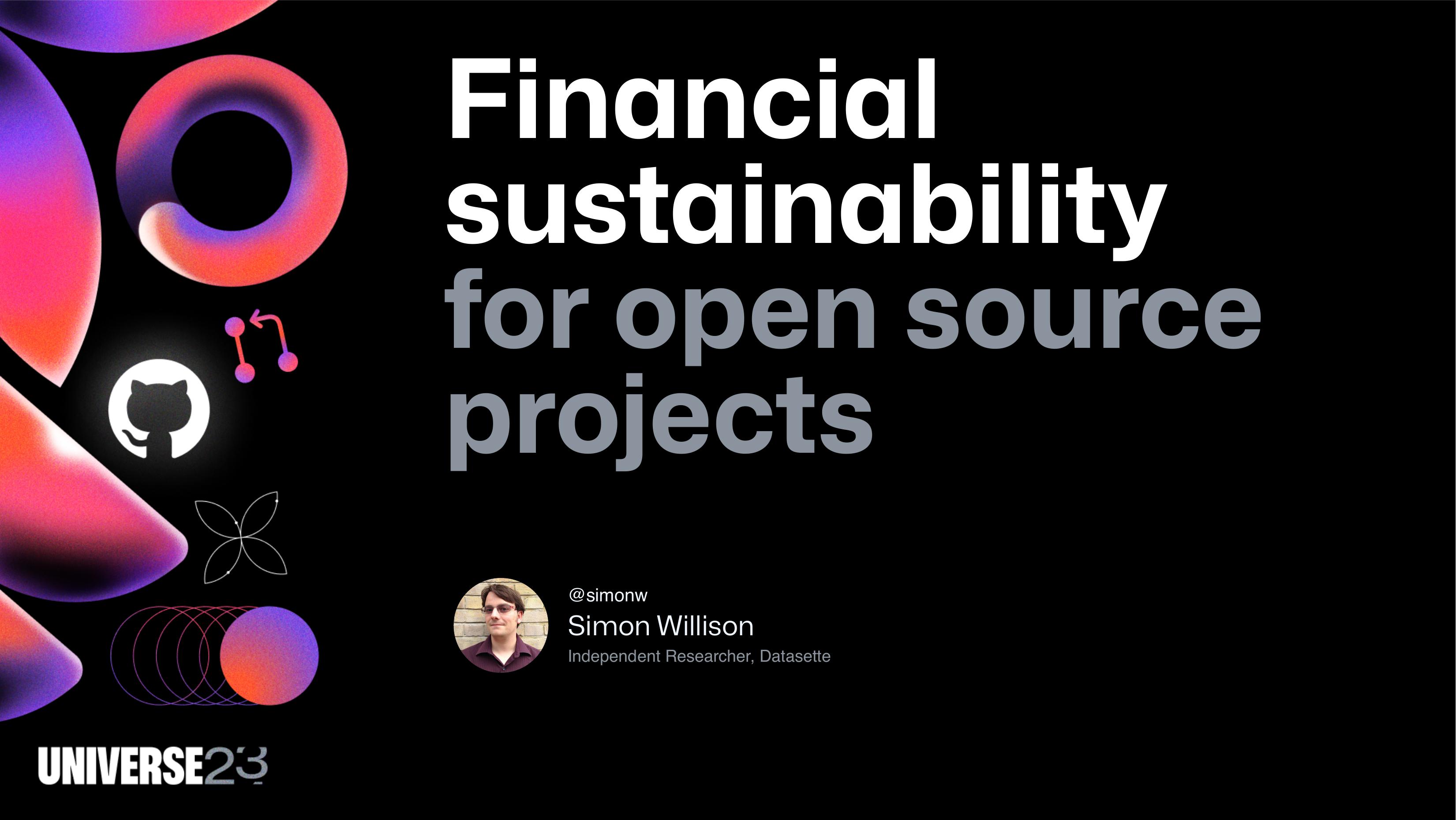1,455 posts tagged “datasette”
Datasette is an open source tool for exploring and publishing data.
2023
Weeknotes: DevDay, GitHub Universe, OpenAI chaos
Three weeks of conferences and Datasette Cloud work, four days of chaos for OpenAI.
[... 766 words]Financial sustainability for open source projects at GitHub Universe
I presented a ten minute segment at GitHub Universe on Wednesday, ambitiously titled Financial sustainability for open source projects.
[... 2,485 words]Weeknotes: PyBay, AI Engineer Summit, Datasette metadata and JavaScript plugins
I’ve had a bit of a slow two weeks in terms of building things and writing code, thanks mainly to a couple of conference appearances. I did review and land a couple of major contributions to Datasette though.
[... 564 words]Weeknotes: the Datasette Cloud API, a podcast appearance and more
Datasette Cloud now has a documented API, plus a podcast appearance, some LLM plugins work and some geospatial excitement.
[... 1,243 words]Getting started with the Datasette Cloud API. I wrote an introduction to the Datasette Cloud API for the company blog, with a tutorial showing how to use Python and GitHub Actions to import data from the Federal Register into a table in Datasette Cloud, then configure full-text search against it.
Geospatial SQL queries in SQLite using TG, sqlite-tg and datasette-sqlite-tg. Alex Garcia built sqlite-tg—a SQLite extension that uses the brand new TG geospatial library to provide a whole suite of custom SQL functions for working with geospatial data.
Here are my notes on trying out his initial alpha releases. The extension already provides tools for converting between GeoJSON, WKT and WKB, plus the all important tg_intersects() function for testing if a polygon or point overlap each other.
It’s pretty useful already. Without any geospatial indexing at all I was still able to get 700ms replies to a brute-force point-in-polygon query against 150MB of GeoJSON timezone boundaries stored as JSON text in a table.
